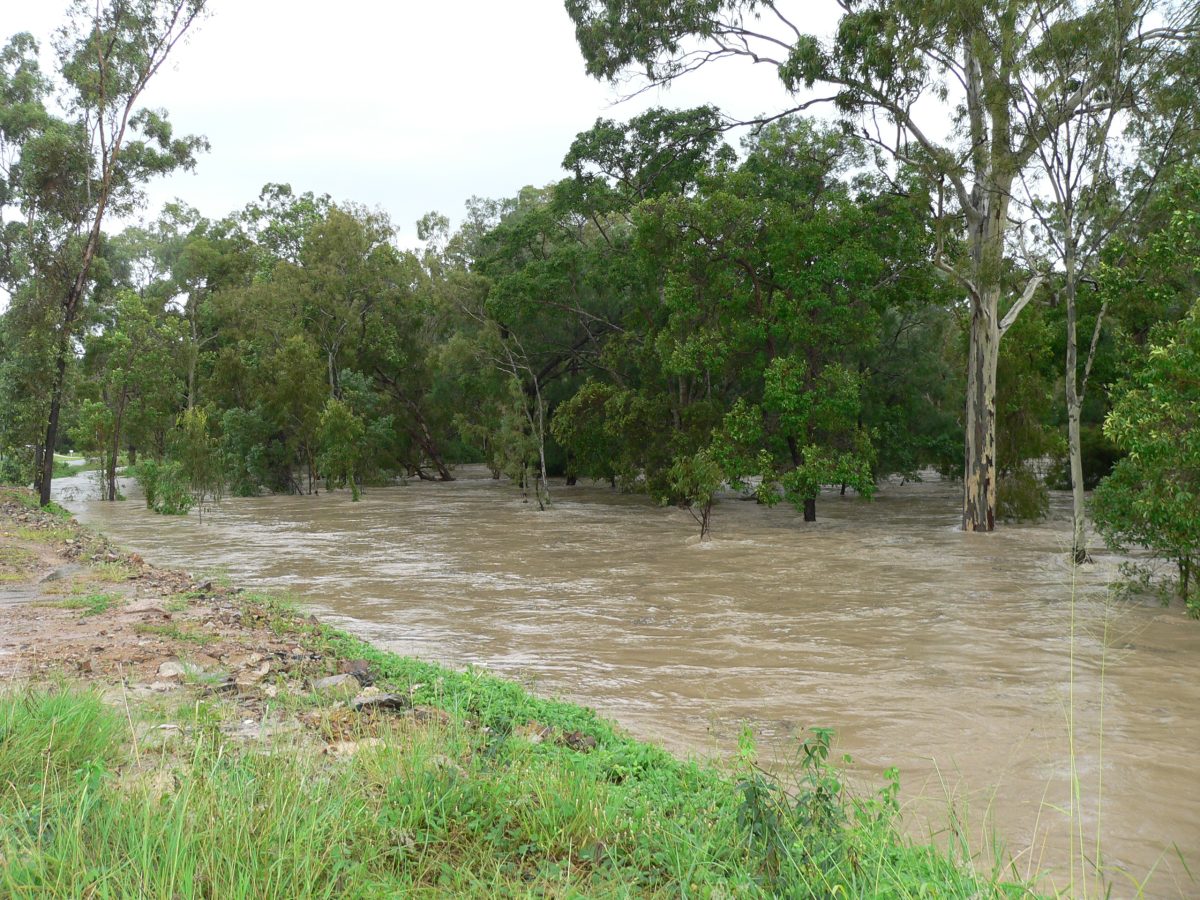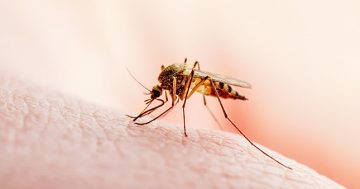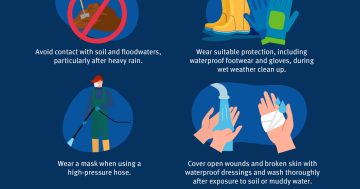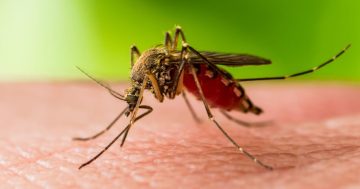
TCHHS says to stay out of flood water and stay safe from disease and infection. Photo: Tammy Walker.
As the wet season continues to build post-Cyclone Jasper, residents across Cape York and Northern Peninsula Area are being urged to stay vigilant about their health and safety during heavy rain and flood.
The Torres and Cape Hospital and Health Service (TCHHS) warned that flood water had the potential to bring about several hygiene risks.
TCHHS Public Health Medical Officer Dr Allison Hempenstall said contact with flood water could increase the risk of bacterial diseases and diarrhoeal conditions.
“To minimise health risks, do not swim in flood water and ensure that you and your children keep away from stormwater drains and creeks,” she said.
“And avoid wading even in shallow water, as it may be contaminated.”
“If you must enter shallow flood water, wear solid boots or shoes for protection,” she said.
Wound infections, dermatitis, conjunctivitis, and ear, nose and throat infections can also occur from coming into direct contact with contaminated flood water.
“You should consider avoiding flood water and mud if you have broken skin or wounds, especially if you have diabetes or other chronic illnesses,” she said.
TCHHS advised all wounds to be cleaned, disinfected and covered immediately, and to see a health professional for severe wounds, especially if they become red, sore, swollen or painful.
Dr Hempenstall said simple hygiene measures to keep yourself and others safe were essential.
“Always wash your hands with soap and water before handling food, and after handling pets that may have swum in contaminated water,” she said.
“For hands that are dirty or feel gritty, wash hands, and then apply an alcohol-based hand rub.”
She said maintaining food safety, especially if power had been cut or food had been in contact with floodwater, was imperative.
“Eating food that has not been refrigerated for some time can lead to gastrointestinal illnesses which can be serious,” she said.
“These illnesses can cause serious vomiting, diarrhoea or sepsis (blood poisoning).”











